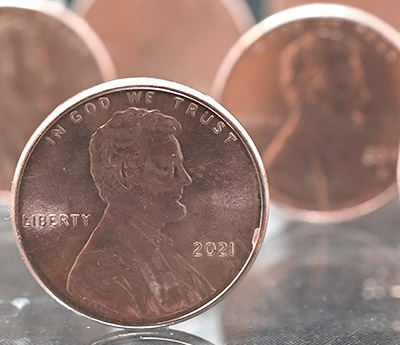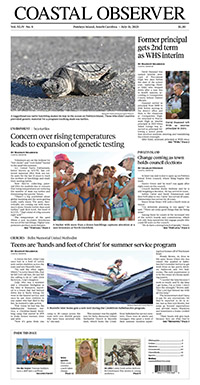Sales tax
Two 1-cent taxes proving a hard sell to county voters

Georgetown County voters have rejected local sales taxes three of the four times they have been proposed. And those were all for 1 cent each.
This year, the county is proposing 2 cents, one for property tax relief and another for capital projects. Even proponents say that is probably a penny too much.
“The question is, ‘Why do we need two,’” said Kim Fox, a member of the Small Change, Big Impact Committee organized to promote the referendums that are on this year’s general election ballot.
It’s a question the committee has tried to answer in the weeks leading up to the election.
Fox, who owns a marketing company and is executive director of the Pawleys Island-Litchfield Business Association, worked to pass a capital project sales tax in 2014. It won 59 percent of the vote and passed in all nine Waccamaw Neck precincts.
“It was very different this time than 2014,” Fox said. “I will say it was easier in 2014.”
One referendum placed on the ballot by Georgetown County Council seeks a 1-cent local option sales tax that, by law, requires 71 percent of the revenue to be used as a credit against property values. That has the effect of lowering taxes on real estate and business and personal property. The remainder goes to county and municipal government operations unless they decide to increase the property tax credit.
A second referendum is for a 1-cent capital project sales tax. It is estimated to raise $74 million over eight years to fund 22 priority projects. Of those, eight are water and/or sewer projects in the western part of the county that total $42 million.
Any additional revenue will be applied to 19 contingency projects, including another $25.2 million for water and/or sewer projects.
The rationale for two local sales taxes was that the property tax credit from the local option tax would offset the additional sales tax residents would pay by generating revenue from non-residents, including tourists.
“I think we all agree that passing two referendums is harder than passing one,” Fox said.
The twin measures are harder to explain to voters, said Jackie Broach, the county’s public information officer.
“If they do it again, I hope council will separate them. It would make it easier from my perspective,” she said, adding that she doesn’t have an official position on the referendum result.
By law, public funds can’t be used for advocate for ballot measures, so county staff have held meetings to explain the taxes. The Small Change committee, coordinated by the Chamber of Commerce, has held meetings to urge voters to pass both measures.
The capital project sales tax has generated opposition under the banner United Georgetonians who initially focused on a $1 million allocation to the city of Georgetown that would pay for moving power lines as part of a $6.5 million widening of Black River Road in front of Georgetown Memorial Hospital. The work would require cutting down a dozen live oaks.
This week, the group sent out mailings to Waccamaw Neck voters that labeled the measure “a Developers Relief Act.”
The state Ethic Commission doesn’t require committees that support ballot measures to file campaign reports following a 2012 decision by a U.S. District Court judge that found that portion of state law unconstitutional.
United Georgetonians declined a request to be interviewed, but issued a statement through Tom Swatzel, a former County Council member and political consultant who is working with the group.
“The United Georgetonians’ goal is to defeat the capital project sales tax to achieve two purposes: Save our magnificent live oak trees from the Black River Road widening project and stop $40 million of our tax dollars from going to water and sewer projects that will mostly help developers build thousands of residential and commercial units,” the group said.
While acknowledging the need for capital projects, it called the projects on the ballot “ill-conceived, with most not even being part of any strategic plan.”
The project list was drafted by a six member commission, as required by state law. It held meetings around the county over six months to solicit projects, although only entities actually able to construct the projects were eligible to apply.
What the opponents’ mailing doesn’t point out is that any growth resulting from the water and sewer projects will be in the western portion of the county, an area where council members from the Waccamaw Neck have for years tried to encourage development as a way to take pressure off their constituents.
Fox noted the opponents’ message is similar to the one used by Waccamaw Neck residents who opposed an update to the county’s future land use plan this year.
“It’s hard to defend when CPST and LOST are different issues,” she said, referring to the sales taxes.
The land use debate also deepened distrust of county government, Broach said.
“There is a contingent that hates County Council and hates county government. They just aren’t listening to anything we say.”




